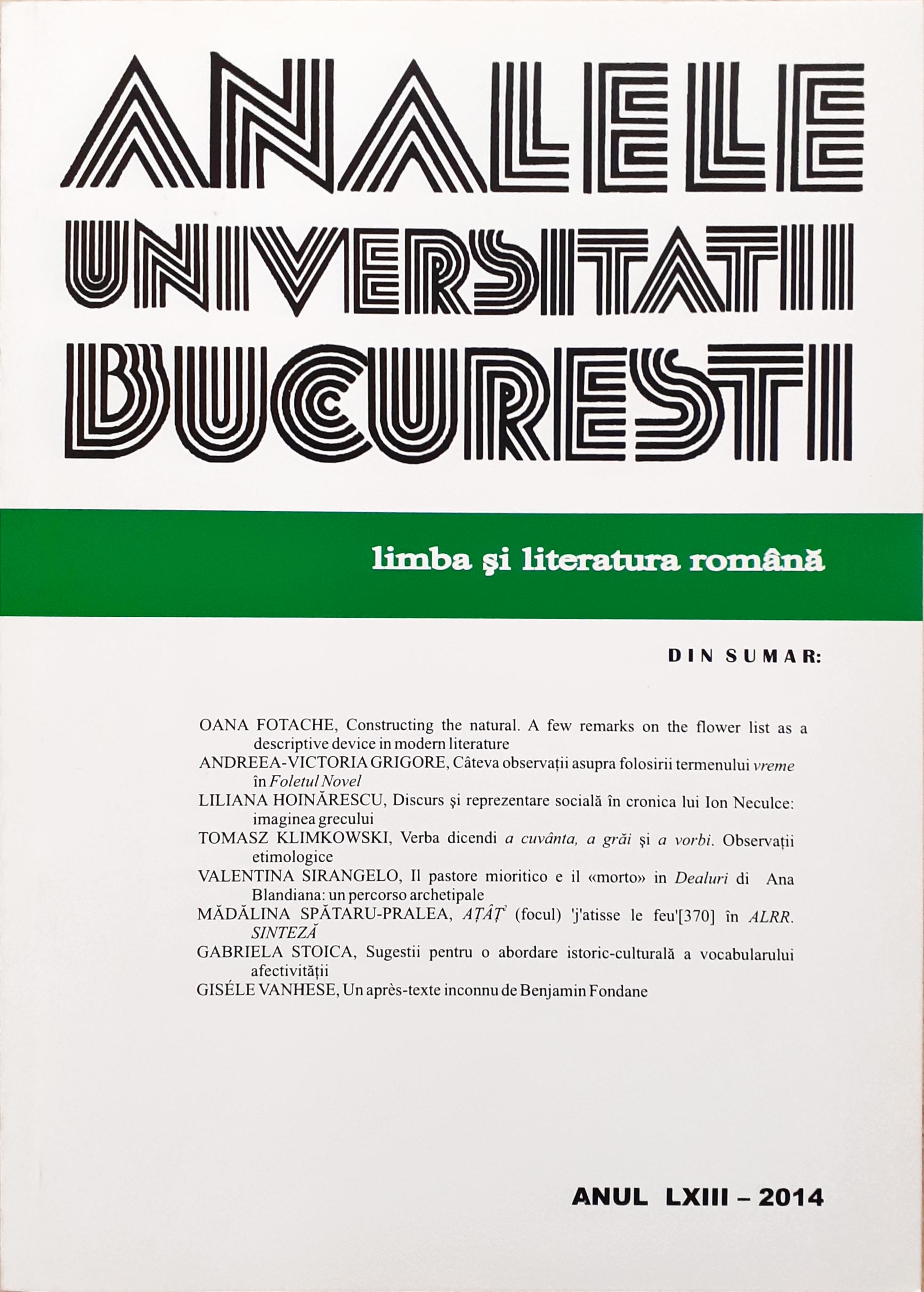Il pastore mioritico e il "morto" in "Dealuri" di Ana Blandiana: un percorso archetipale
The mioritic shepherd and the "dead" character in Ana Blandiana’s "Dealuri": an archetypal itinerary
Author(s): Valentina SirangeloSubject(s): Comparative Study of Literature, Romanian Literature
Published by: Editura Universităţii din Bucureşti
Keywords: Mythocriticism; Comparatistics; Romanian Poetry; Romanian Folklore; Vegetation God; Death; Cycle;
Summary/Abstract: The present study proposes an analysis of the poem "Dealuri" (1977) by Ana Blandiana, carried out under the comparatistics perspective. A complete and coherent interpretation of "Dealuri" ‒ and, in particular, of the «dead» character ‒ can be realized through the mythocritical methodology, by employing the Vegetation God archetype. The first part reflects on the poem’s landscape: two specular dimensions ‒ air and earth ‒ are crossed by "spherical" hills, which benefically bestow prosperity on them and which are thus classifiable as a hypostasis of the Earth Mother Goddess. The second part, after having ascribed Dealuri to Lucian Blaga’s "mioritic space", proposes a comparatistic study of the Romanian Folk Ballad Mioriţa ("Dealuri"’s hypotext): in particular, the passive-feminine traits of the shepherd ‒ its main character ‒, the lamentation which his demise causes, but above all his fictitious marriage with an arcane female figure, permit to identify him with the Vegetation God archetype. The last part illustrates how this self-same archetype can be recognized in the "dead" character of "Dealuri", lying underground but mindful of his past "lives" while listening "eternities" flowing. The Vegetation God Myth, preserved intact in an archaic text such as Mioriţa, is thus projected in a Twentieth-Century poem through a creative act of Ana Blandiana.
Journal: Analele Universităţii Bucureşti. Limba şi literatura română
- Issue Year: LXIII/2014
- Issue No: 63
- Page Range: 61-74
- Page Count: 14
- Language: Romanian, Italian

